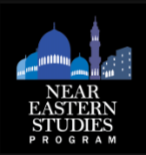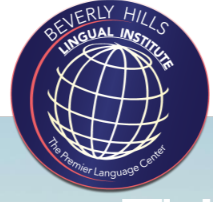Arabic is the 5th most commonly spoken native language in the world. Arabic is the official language of over 20 countries and there are well over 300 million native speakers of the language. These speakers are largely concentrated in the Middle East, but there are minority groups of native speakers.

Why Study Arabic
Arabic Language Courses
The recommended path for those who have no prior exposure to Arabic is to begin with ARA 101/102, progress to ARA 105/105, and then select from a variety of 300-level courses. The most advanced level of Arabic, ARA 403-404 requires the instructor’s permission in order for students to enroll.
The Program in Near Eastern Studies provides opportunities to study the languages, modern history, and contemporary institutions of the Arab world, Iran, Israel and Turkey, as well as the Islamic World more broadly.
Requirements For Admission
Most students in our program come from the Departments of Anthropology, History, Politics, Religion, Sociology, or the Woodrow Wilson School of Public and International Affairs.
Students from other departments who have an interest in Near Eastern studies may enter the program with the Director’s approval. Students must meet the requirements of the department in which they are concentrating in addition to those of the Program in Near East Studies.
Course Of Study
In general, students follow the plan of study of their home department; for example, students in Woodrow Wilson School earning a PNES certificate select the Near East in the modern world as a field of concentration. Specific requirements of the Program are as follows:
Language: Students who have had no relevant language training will take at least two years of Arabic, Hebrew, Hindu, Urdu, Persian, Turkish or Swahili language as elective courses.
Students are encouraged to begin the study of a Near Eastern language as early as possible in order to enable them to continue it beyond the required minimum and, if desired, to offer it to meet the language requirement for the A.B. degree. The program also encourages qualified students to enroll in summer sessions in Near Eastern languages
History: All students will take, as departmental courses, at least one appropriate history course in the Department of Near Eastern Studies. Students in the Department of History will take at least two such courses.
Social Sciences: All students will take at least two courses treating the islamicate world that are chosen from the offerings of the Departments of Anthropology, Near Eastern Studies, Politics, Religion, and Sociology, and the Woodrow Wilson School.
Junior independent work is divided between the student's department and the program.
The senior thesis is written on an islamicate subject under the supervision of an islamicate specialist in the appropriate department and the Program.
Students take the regular senior departmental examination given by their department, except that a portion of it deals with the islamicate fields studied. These examinations are described in the sections of this catalog for each department.
Certificate Of Proficiency
A student who completes the requirements of the program with satisfactory standing receives a certificate of proficiency in Near Eastern studies. A student who satisfactorily completes study abroad will have this fact noted on the certificate.

Learning Arabic course language will not only increase your chances of finding work opportunities but it's also been shown to increase your earnings.

Arabic, the fifth most commonly spoken language in the world, is spoken natively in twenty-six countries, by almost four hundred million people in the Arab world.

Arabic is one of the world’s major languages, spoken in a broad belt extending from the Arabian Peninsula north to the Fertile Crescent and then west to the Atlantic Ocean.

Most students at language loop study modern standard arabic, which is used in academic and professional settings, in the media, and in literature throughout the middle east and north africa.

Arabic language course is offered by Askademic.The space is designed around a Belgium theme, from the architecture to the tricycles, all with the goal of providing your child with an immersive language learning environment.
© 2025 coursetakers.com All Rights Reserved. Terms and Conditions of use | Privacy Policy